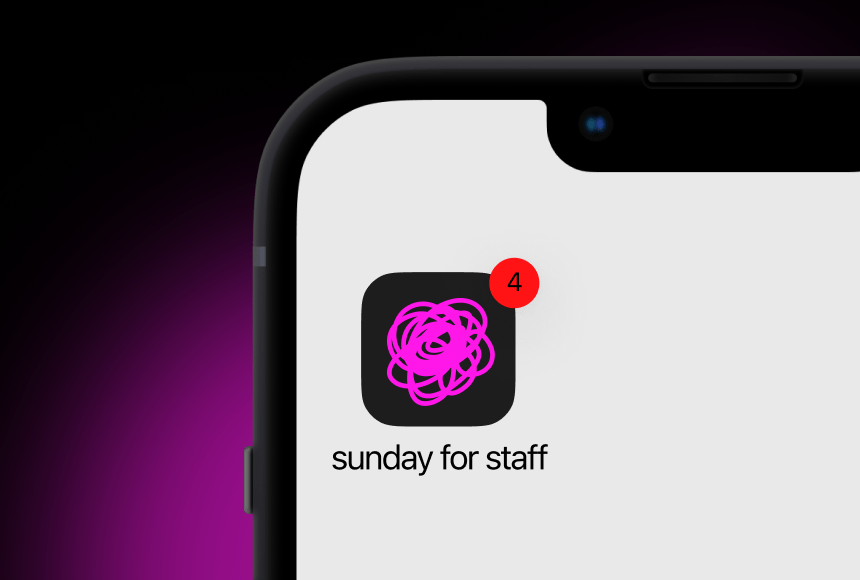
Building a Winning Team: Key Tips for Recruiting Top Restaurant Talent
1. Understand Why the Right Staff Matters
Your restaurant team isn’t just there to take orders and cook meals. They are the face of your brand, the people who deliver memorable customer experiences every day. A warm greeting at the door, efficient service, and a genuine smile can turn a first-time guest into a loyal customer. Conversely, a mismanaged front-of-house or an inexperienced kitchen brigade can leave diners with a bitter taste.
It’s not just about customer satisfaction, either. A strong team also drives operational efficiency. Skilled staff know their roles, support each other, and can handle a busy service with minimal stress. That translates to better resource management, reduced waste, and a healthier bottom line (Forbes). In the end, investing time and effort in recruiting top-quality staff pays off handsomely, both in revenue and reputation.
2. Define Roles and Responsibilities Clearly
Before you begin hiring, outline the core responsibilities for each position. This might sound obvious, but the more accurate you are, the higher the chances you’ll attract candidates who truly match your needs. Vague or generic job ads lead to a flood of unqualified applicants—and extra administrative work for you.
In a restaurant, roles typically include:
- Head Chef or Executive Chef: Oversees menu development, cost management, and kitchen leadership.
- Sous Chef and Line Cooks: Assist with food preparation and maintain consistency in quality and presentation.
- Restaurant Manager or General Manager: Manages day-to-day operations, staff scheduling, and financial performance.
- Front-of-House Staff (Servers, Hosts, Bartenders): Engage with guests, handle orders, upsell menu items, and ensure smooth service.
- Back-of-House Support (Kitchen Porters, Dishwashers): Keep the kitchen clean and organised, ensuring hygiene standards are met.
Each of these roles has unique challenges, from coordinating busy dinner services to dealing with unexpected equipment failures. By clearly describing responsibilities, potential hires know exactly what to expect. It also helps you screen candidates effectively during the hiring process (Restaurant Business Online).
3. Offer Competitive Pay and Benefits
The restaurant industry can be fiercely competitive—not just for winning over customers but also for attracting and keeping skilled staff. If you want people who are passionate and capable, you have to offer them something worthwhile. This starts with competitive wages. The UK’s National Living Wage is a baseline, but top talent expects more than the bare minimum.
Additionally, consider offering:
- Healthcare or Wellness Benefits: Even a modest contribution to private health insurance or mental health support can be a big draw.
- Paid Time Off: Offering a fair holiday allowance shows you value work-life balance.
- Meals and Discounts: Many restaurants provide staff with a free or discounted meal during their shift—small gestures that go a long way.
- Career Development Opportunities: Budget for training courses, wine tastings, cooking workshops, or management seminars.
When your employees feel valued, they’re far more likely to put their heart into the job. This sense of security and appreciation fosters loyalty, which is key to building a strong, cohesive team that stays with you for the long haul.
4. Choose the Right Recruitment Channels
Now comes the trickier part: finding the right candidates. Posting on local job boards or social media platforms might seem easy, but it can also flood your inbox with applicants who aren’t a good fit. Tailor your recruitment strategy to each role and consider specialised platforms.
- Hospitality-Specific Job Sites: Websites dedicated to hospitality jobs will help you reach candidates who already have relevant experience.
- Referrals: Encourage your existing team to recommend people. Offer a small bonus if you hire their referral and it works out.
- Recruitment Agencies: If you’re looking for senior management or specialised skills, agencies can save you time by pre-vetting candidates.
- Local Community and Colleges: Advertise roles in local communities, culinary schools, or hospitality colleges where enthusiastic newbies might be looking for a first break.
Diversifying your recruitment channels ensures a steady stream of qualified candidates. Remember, the more specific and targeted your approach, the more likely you are to find a true gem.
5. Nail the Interview Process
A good interview should feel like a friendly chat with a purpose, not a high-pressure interrogation. This is your chance to understand the candidate’s personality, work ethic, and fit within your restaurant’s culture.
- Prepare Key Questions: Focus on scenario-based questions. For example, “Tell me about a time you resolved a conflict with a coworker or guest.” This reveals how they handle real-life situations.
- Test Their Skills: For kitchen roles, consider a short skills test—chopping vegetables, plating a dish, or explaining a recipe. For front-of-house roles, see how they handle a hypothetical difficult customer.
- Discuss Career Goals: Show you care about their future by asking where they’d like to be in five years. You’ll learn if their ambitions align with the opportunities you can offer.
- Cultural Fit: Look for people who share your values. This goes beyond skill; it’s about attitude, teamwork, and passion.
Interviewing is not just about you choosing them; it’s also about them choosing you. Present your restaurant in a positive light by talking about your culture, training programmes, and any unique selling points—like your menu concept or sustainability practices.
6. Onboarding and Training: Setting the Stage
Bringing a new team member on board is a lot like seasoning a dish—you want to do it right from the start to let the flavours develop properly. Often, employers invest heavily in recruitment but neglect proper onboarding, creating confusion and frustration for new hires.
Implement a clear onboarding process:
- Orientation: Introduce them to the team, show them around the restaurant, and go over the basics: health and safety, fire exits, and work schedules.
- Mentorship or Buddy System: Pair your new hire with a seasoned employee who can guide them during their first few weeks.
- Training Programmes: Provide structured sessions on menu knowledge, customer service, and the use of your card machines or smart terminals.
- Feedback Schedule: Set milestones—like a check-in after the first week, month, and quarter. This allows you to address issues early on and show genuine interest in their progress.
A well-structured onboarding process not only boosts confidence and performance but also reduces staff turnover rates. People appreciate feeling supported right from the start.
7. Use Technology to Boost Efficiency and Morale
Technology can be a game-changer for your staff’s daily workflow. By automating repetitive tasks and speeding up the payment process, your employees can focus on what they do best: delivering a fantastic dining experience.
That’s where sunday comes into play. Sunday’s payment solution lets customers pay at the table via QR code, tip generously, and even leave a quick Google review—all without tying up your team at the till. This means your front-of-house staff can spend more time making guests feel welcome, upselling special menu items, and building those personal connections that keep customers coming back.
When staff don’t have to juggle endless admin tasks or worry about slow payment terminals, morale goes up. Technology might not replace a friendly smile, but it sure can free up more time for your team to wear theirs.
8. Foster a Positive Work Culture
A restaurant is like a living organism—it thrives when the environment is healthy and positive. Creating a friendly, supportive culture ensures that employees feel comfortable voicing concerns, innovating, and going above and beyond for customers.
Try to:
- Lead by Example: Your attitude sets the tone. Treat staff respectfully and encourage open communication.
- Promote Teamwork: Organise briefings before service, encourage collaboration, and celebrate team successes—like glowing customer feedback.
- Offer Growth Opportunities: Regularly assess performance and offer cross-training or promotions where possible.
- Recognise Achievements: A simple “thank you” can go a long way. Publicly praise team members who excel or improve.
When people enjoy coming to work, your restaurant becomes more than just a place of employment; it becomes a community where everyone supports one another. This positivity is contagious and visible to customers, too.
9. Retain Your Best Talent
High turnover is a common issue in the hospitality sector, with many restaurants constantly in recruiting mode. According to UKHospitality, annual staff turnover in the industry can hover around 30% to 40%. Recruiting and training new staff repeatedly is costly and time-consuming, not to mention stressful for everyone involved.
To retain top talent:
- Provide Clear Growth Pathways: Show employees that they can advance to senior roles if they excel.
- Incentivise Loyalty: Offer bonuses, salary reviews, and extended benefits for employees who stay beyond a certain period.
- Maintain Competitive Work Hours: Rotating schedules fairly can prevent burnout. Consider options for flexible hours if feasible.
- Listen and Adapt: Encourage honest feedback through surveys or one-on-one meetings, and act on reasonable suggestions.
These strategies not only improve retention but also attract high-calibre professionals who look for more than just a paycheck—they look for a sustainable career.
10. Savour the Rewards of Investing in Your Team
Recruiting quality staff can feel like a masterclass in patience, but the outcome is well worth the effort. A talented team is your restaurant’s bread and butter—ensuring exceptional customer experiences, efficient operations, and glowing reviews. Investing in clear role definitions, competitive benefits, effective onboarding, and a positive culture sets the tone for long-term success.
Remember, your staff members are the ambassadors of your brand. When they feel motivated, supported, and proud of where they work, they become your best spokespeople. Good word-of-mouth spreads faster than any marketing campaign. By focusing on quality staff, you’re not just filling vacancies—you’re laying the foundation for a thriving, resilient business that continues to delight guests, day after day.
If you’re ready to take your restaurant experience a step further, explore how sunday can help simplify payments and free your team to concentrate on creating memorable dining moments. Think of it as the perfect garnish on an already stellar recipe—subtle, yet transformative.
Find out more today
Drop us your details below and we’ll reach out within the next 24
Get the full, detailed picture.
sunday elevates your business with insightful data, instant feedback and precise analytics.




